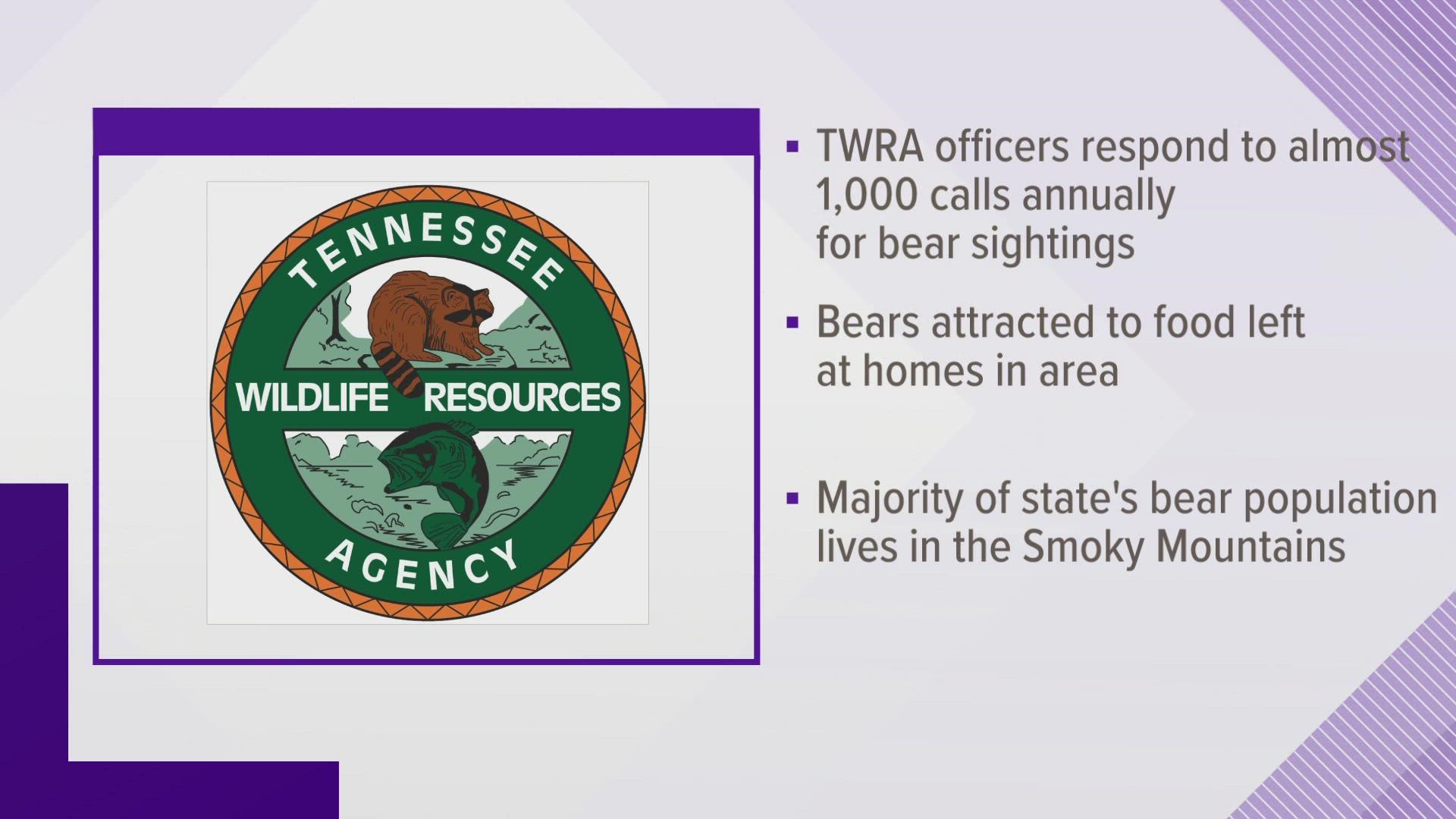TENNESSEE, USA — As Tennessee's human population keeps growing, black bears are looking for ways to adapt, according to the Tennessee Wildlife Resources Agency.
According to recent census data, Tennessee ranks eighth nationally among the fastest growing states as nearly 200,000 people have relocated to the volunteer state since 2019. TWRA said that 7 million people now call Tennessee home.
Over 14 million people annually visit the Great Smoky Mountains National Park where a large percentage of Tennessee’s 5,500 black bears live, TWRA said.
TWRA said the odds of bear-human interactions are high in and around the mountainous areas of East Tennessee. These interactions are most evident in park border towns in Sevier and Blount counties. Tons of food waste from the thousands of homes, rental properties, and restaurants scattered across the area draw bears.
TWRA wildlife officers in the region respond to 500-1,000 annual calls in regard to black bears, many of which are nuisance calls in Sevier County.
“The overwhelming desire to have a close encounter with a black bear is strangely more powerful than common sense,” said Sgt. David Sexton, a wildlife officer who’s spent over two decades in Sevier Co. “Many people intentionally feed bears with little regard for the dire consequences to the bears and humans they leave behind.”
According to a press release, these types of actions spawned regulations in 2000 that prohibits anyone to feed a black bear or leave food or garbage in a manner that attracts bears. However, the regulations only apply to a 6 sq. mi. area of Gatlinburg and were intended to create a buffer zone with hopes that bears would be deterred from going further into the city if they couldn’t get into garbage. Outside of the GSMNP and the buffer zone in Gatlinburg, there aren’t any prohibitions against feeding bears in Tennessee.
TWRA hopes that making the public aware of the dangers of habituating bears to unnatural foods will help curb the increasing frequency of bear-human conflict.
TWRA Black Bear Program Coordinator Dan Gibbs said that the agency has seen more incidents involving bears getting into dwellings and vehicles this year than any other year he can remember.
“If you leave food or food trash inside your parked vehicle with the windows open or doors unlocked in the eastern grand division, you’re subject to have a bear get inside," Gibbs said.
In June, a black bear died after getting stuck inside a car parked outside a Sevierville rental cabin on a 95-degree day as temperatures inside the vehicle likely reached over 140 degrees, TWRA said. The culprit appeared to only have been an empty soda can and snack food bag.
“Bears have noses seven times better than a bloodhound and can smell food inside a vehicle,” says Gibbs. “Lock your doors, roll up your windows, and never leave anything inside that has even the faintest odor of food including empty food containers, candy wrappers, fast food bags, or even air fresheners.” When camping or picnicking, you may not have a choice but please lock food in the trunk or cover it with something to keep it out of sight as bears may also recognize the sight of food through the glass and attempt to get in.”

